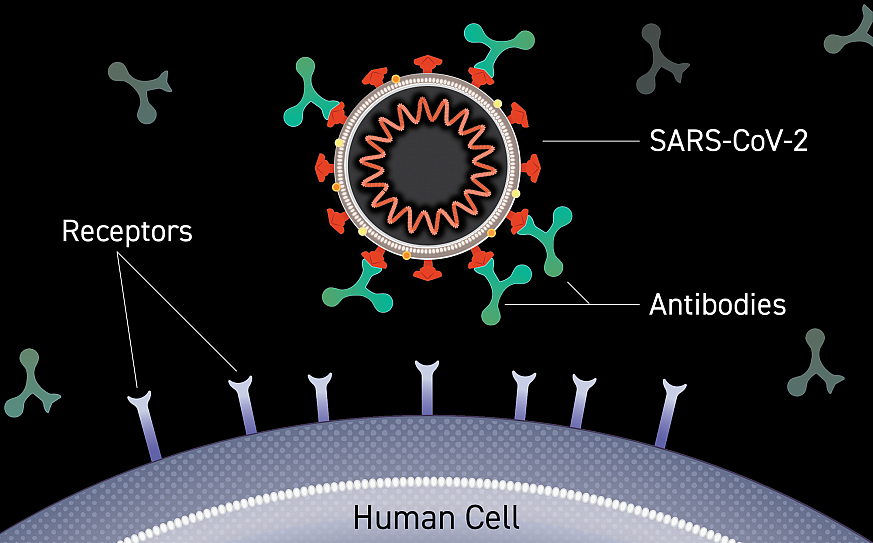Vaccines have been one of the most significant medical advancements in human history, preventing millions of deaths from infectious diseases. They work by stimulating the body’s immune system to recognize and combat harmful pathogens, such as bacteria and viruses, without causing the disease itself. Understanding the science behind immunization reveals why vaccines are crucial for global health and disease prevention.
The Immune System and How Vaccines Help
The human immune system is designed to protect the body from infections. When a pathogen enters the body, the immune system recognizes it as a foreign invader and responds by producing antibodies to neutralize the threat. Once the infection is cleared, the immune system retains a memory of the pathogen, allowing it to respond more quickly and effectively if the same pathogen is encountered again.

Vaccines take advantage of this natural defense mechanism by exposing the immune system to a harmless version of a pathogen, which can be a weakened or inactivated virus, a protein fragment, or genetic material. This exposure triggers the immune response, leading to the production of antibodies and immune memory without causing illness. As a result, if the vaccinated person later encounters the actual pathogen, their immune system is prepared to fight it off before it can cause serious disease.
Types of Vaccines and Their Functions
Different types of vaccines are developed to provide immunity against various diseases. Each type works by introducing a safe version of the pathogen or its components to the immune system:
- Live Attenuated Vaccines: Contain weakened forms of the virus or bacteria that do not cause disease in healthy individuals but still stimulate a strong immune response. Examples include the measles, mumps, and rubella (MMR) vaccine and the chickenpox vaccine.
- Inactivated Vaccines: Contain pathogens that have been killed or inactivated, making them safe while still prompting an immune response. The polio and hepatitis A vaccines fall into this category.
- Subunit, Recombinant, and Conjugate Vaccines: Use only specific parts of a pathogen, such as proteins or sugars, to generate immunity. Examples include the human papillomavirus (HPV) vaccine and the whooping cough vaccine.
- mRNA and Viral Vector Vaccines: Introduce genetic instructions that enable cells to produce a harmless piece of the virus, triggering an immune response. The COVID-19 vaccines developed by Pfizer-BioNTech and Moderna use mRNA technology, while the Johnson & Johnson vaccine utilizes a viral vector approach.
The Importance of Herd Immunity
When a significant portion of a population is vaccinated, it becomes more difficult for infectious diseases to spread. This concept, known as herd immunity, protects those who cannot be vaccinated, such as newborns and individuals with compromised immune systems. High vaccination rates reduce outbreaks and, in some cases, lead to the complete eradication of diseases, as seen with smallpox.
Vaccine Safety and Development
Vaccines undergo rigorous testing before they are approved for public use. Clinical trials assess their safety and effectiveness in multiple phases, involving thousands of volunteers. Regulatory agencies such as the World Health Organization (WHO) and the U.S. Food and Drug Administration (FDA) monitor vaccine production and distribution to ensure continued safety.
While vaccines may cause mild side effects, such as soreness at the injection site or a low fever, serious side effects are extremely rare. The benefits of vaccination far outweigh the risks, as vaccines prevent severe illness, hospitalization, and death.

The Future of Vaccination
Ongoing research aims to develop new and more effective vaccines for diseases such as malaria, HIV, and cancer. Advances in biotechnology, such as personalized vaccines and improved delivery methods, hold great promise for future immunization efforts. As science progresses, vaccines will continue to play a vital role in protecting global health.
Vaccines are a cornerstone of modern medicine, helping to prevent infectious diseases and save lives. By training the immune system to recognize and fight pathogens, vaccines provide long-lasting protection and contribute to public health efforts worldwide. Understanding how vaccines work reinforces their importance and encourages widespread immunization, ensuring a healthier future for all.
































